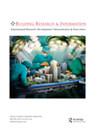基于计划行为理论的大型项目利益相关者合作行为形成机制
IF 3.7
3区 工程技术
Q1 CONSTRUCTION & BUILDING TECHNOLOGY
引用次数: 0
摘要
摘要在大型项目中,所有利益相关者的合作体现了有效的关系管理,是项目成功的关键。本研究从社会心理学的角度探讨了大型项目中利益相关者之间的合作行为是如何形成的,以提高合作质量。本研究以计划行为理论模型为基础,通过全面的文献综述,建立了合作行为形成机制的概念框架。该模型的假设通过使用从中国建筑业235名受访者的问卷调查中收集的数据进行了统计验证。结果表明,利益感知态度、主观规范和感知行为控制对大型项目利益相关者的合作意向和合作行为有积极贡献。风险认知态度对合作意向具有阻碍作用。大项目文化调节了社会心理因素与合作意向之间的关系,从而影响了利益相关者对合作行为的选择。合作意向在心理社会因素和合作行为之间起着部分或完全的中介作用。研究结果为提高利益相关者的合作意向和促进他们在大型项目中选择积极的合作行为提供了理论和实践启示。本文章由计算机程序翻译,如有差异,请以英文原文为准。
Formation mechanism for collaborative behaviour among stakeholders in megaprojects based on the theory of planned behaviour
ABSTRACT In megaprojects, the collaboration of all stakeholders reflects effective relationship management and is a key to project success. This research explores how collaborative behaviour among stakeholders in megaprojects is formed from a social-psychological perspective to improve the quality of collaboration. Based on the theoretical model of planned behaviour, this study established a conceptual framework for the formation mechanism for collaborative behaviour through a comprehensive literature review. The hypotheses of the model were statistically validated by using data collected from questionnaires of 235 respondents within the Chinese construction industry. The results showed that benefit perception attitudes, subjective norms and perceived behavioural control had a positive contribution to the collaborative intention and collaborative behaviour among stakeholders in megaprojects. Risk perception attitudes have a hindering effect on collaborative intention. Megaproject culture moderates the relationship between psychosocial factors and collaborative intention, thereby affecting stakeholders’ choice of collaborative behaviour. Collaborative intention plays a partially or completely mediating role between psychosocial factors and collaborative behaviour. The findings provide theoretical and practical implications for increasing the collaborative intentions of stakeholders and facilitating their selection of positive collaborative behaviours in megaprojects.
求助全文
通过发布文献求助,成功后即可免费获取论文全文。
去求助
来源期刊

Building Research and Information
工程技术-结构与建筑技术
CiteScore
8.60
自引率
7.70%
发文量
43
审稿时长
>12 weeks
期刊介绍:
BUILDING RESEARCH & INFORMATION (BRI) is a leading international refereed journal focussed on buildings and their supporting systems. Unique to BRI is a focus on a holistic, transdisciplinary approach to buildings and the complexity of issues involving the built environment with other systems over the course of their life: planning, briefing, design, construction, occupation and use, property exchange and evaluation, maintenance, alteration and end of life. Published articles provide conceptual and evidence-based approaches which reflect the complexity and linkages between cultural, environmental, economic, social, organisational, quality of life, health, well-being, design and engineering of the built environment.
 求助内容:
求助内容: 应助结果提醒方式:
应助结果提醒方式:


